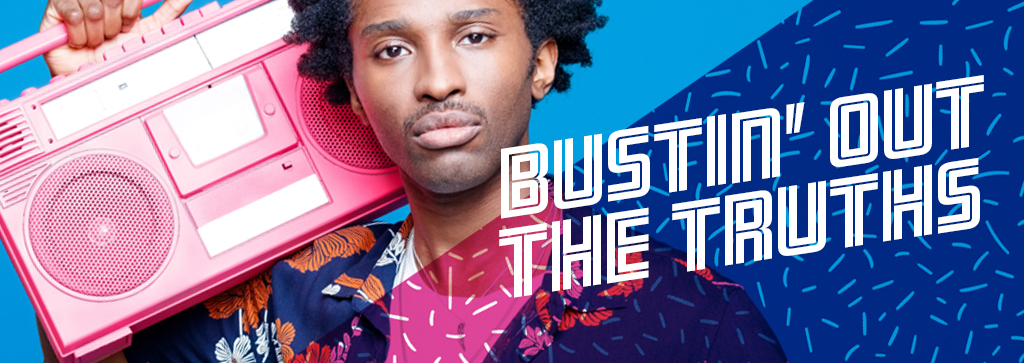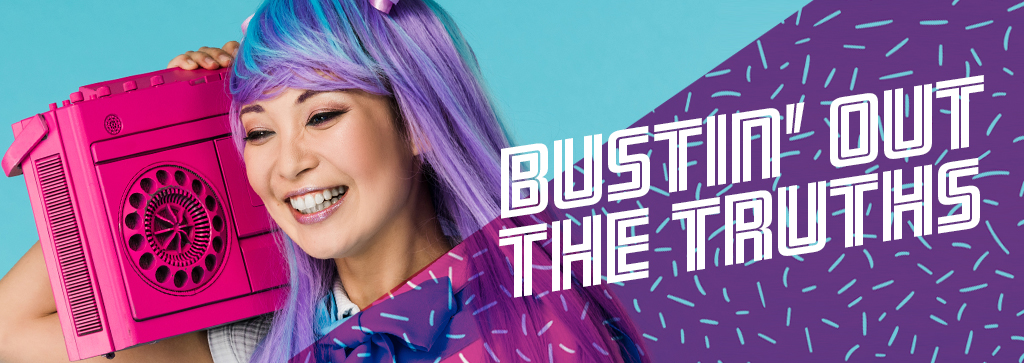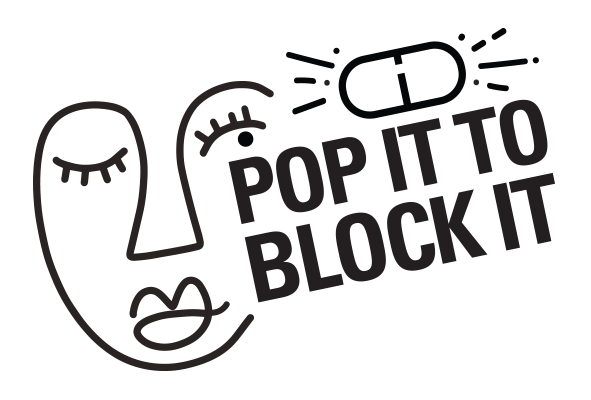10 PrEP Myths Busted

If it’s on the Internet, it must be true — right? AKeem and Deemyi have heard and seen a lot of wrong information going around. Today, they want to help you separate the facts from the fear.
What is PrEP?
PrEP is a type of medicine that you take to help reduce your chances of catching HIV. You’ll hear it called Truvada or Descovy. These are the brand names for the drug. When taken as directed, PrEP reduces your chances of contracting HIV by up to 99%!
PrEP stands for Pre-Exposure Prophylaxis. It’s a tongue-twister. Let’s break it apart: Pre means before, Exposure means having contact with HIV, and Prophylaxis is the prevention of a disease or condition.
PrEP’s name tells us what it does — it prevents a person without HIV from contracting it. So, that means it doesn’t cure HIV. It also means that it isn’t a treatment for HIV or AIDS.
Myth 1 — PrEP is really expensive.
Truvada and Descovy, the PrEP medications, have a sticker price of over $2,000 per month. But nobody has an extra $2,000 a month just lying around. Most people don’t pay anywhere near that price because insurance companies, the government, and the drug company have programs to help you pay for medicines (Link to blog 2).
Gilead is the company that makes Truvada and Descovy. They have two programs to help people pay for PrEP. First, if you’re uninsured or need financial assistance to help pay for PrEP, you may be eligible for their patient assistance program. On the other hand, if you have private insurance, they’ll help, but you may have a large co-pay to cover. Gilead has a co-pay discount program that helps cover your share of the costs. A lot of people pay nothing or next-to-nothing for it every month.
Myth 2 — The side-effects of PrEP will make me sick.
Yes, some people experience side effects when they start taking PrEP. But… most people don’t. Common side effects from PrEP drugs are headaches, nausea, weight loss, and dizziness. If you do experience side effects, they are generally mild and usually only last a few days or weeks.
There are some rare, but serious side effects associated with the PrEP drugs. A decline in kidney function or reduced bone density (this has never been associated with breaks or fractures) are the most serious. Both of these side-effects are temporary and reversible. It’s important to keep up on the labwork your provider orders so that they can catch these early.
Myth 3 — PrEP lets you be sexually reckless and promiscuous.
Don’t sex-shame people. Sex is natural and healthy. Everyone should be able to do what they want as long as they have proper consent. PrEP helps people protect themselves from contracting HIV — it helps them put their health first.
There’s another safer-sex benefit from taking PrEP. Part of taking PrEP means getting tested and seeing your healthcare provider every 3-6 months. A lot of STIs don’t have symptoms right away, so you’re more likely to catch them early if you’re keeping up on your PrEP care.

Myth 4 — You only take PrEP on the days you’re having sex.
This is complicated. When PrEP first came out, it was a once-daily pill. And it is usually prescribed that way. There is another way of taking it if you’re engaging in unprotected anal sex. It’s called the 2-1-1 plan. It’s not been tested for vaginal sex. You can find out more about it from your healthcare provider.
Myth 5 — PrEP is only for gay people or only for bottoms (receptive anal sex partners).
HIV doesn’t care what your sexual orientation is or what sex position you prefer. It’s a virus, it doesn’t have a Grindr or Tinder profile.
Yes, some people have more risk than others. Here are the things that actually put people at risk of contracting HIV:
- Being sexually active
- Having more than one partner
- Having sex with partners who have an unknown HIV status
- Not using condoms or other risk-reducing methods
- Having a recent or current STI
Not one of those factors has anything to do with sexual orientation, gender identity, or position preference.
Myth 6 — PrEP means you don’t need condoms.
PrEP protects you from contracting HIV. It does not protect you from contracting other STIs. Syphilis, gonorrhea, and chlamydia, to name a few. It also does not prevent pregnancy.
You should talk with your partner(s) about your sexual and health histories and use condoms along with other risk-reducing methods to protect against other STIs. Condoms protect against HIV, other STIs and prevent pregnancy.
These things all sound cold and clinical. They actually make sex even better. When you have proper consent and honest communication about your sexual and health history, you can focus on enjoying sex instead of worrying.

Myth 7 — If I start PrEP, I’ll have to take it for the rest of my life.
PrEP is for people who don’t have HIV and are at risk of contracting it. If your life-situation changes, it’s totally okay to talk with your provider about stopping PrEP. For example, if you were single with multiple partners but now find yourself in a monogamous relationship with an HIV-negative partner, then you’d be fine getting off PrEP.
Remember, you can always start taking PrEP again — just see your healthcare provider.
Myth 8 — Taking PrEP means more visits to the doctor.
This one is pretty true. But it’s a myth that you should think it’s a bad thing. Once you’re on PrEP, you’ll need to have lab work done every 3 to 6 months and have an occasional follow-up visit with your provider. The follow-ups are quick appointments.
It’s a good thing because frequent screenings means that you’re more likely to catch other STIs and health conditions early on.
Myth 9 — I’ll test positive for HIV if I’m on PrEP.
You’ll only test positive for HIV if you’re actually infected with HIV. PrEP is about preventing you from getting HIV, since it’s only for people who are HIV-negative.
Myth 10 — If I take PrEP and end up getting HIV later, the HIV drugs won’t work for me.
There is a small chance that if you’re living with HIV, you may test negative for HIV at your first PrEP appointment. Taking PrEP while HIV-positive could lead to resistance. This is very rare.
Don’t worry, though. There are plenty of other medicines that we can use to treat HIV, and there are more coming out every year.
Ready to get going with PreP?
Now that you’ve got real, accurate information about PrEP, you may be ready to get going. The first step is contacting your primary care provider (PCP).
Have questions?
AKeem Rollins, MetroHealth – Call or Text 216.714.2223
Fiona Allan, University Hospitals
Call 216.286.7737

Email AKeem at Metro for PrEP




